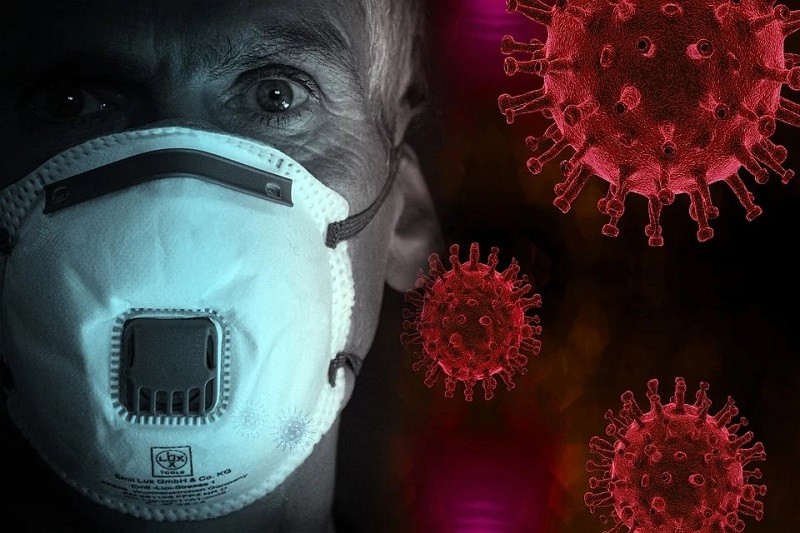Citizens are now being told by their governments that they need to quarantine themselves in their own homes. Children have been sent home from schools, restaurants have been instructed to close their doors, and employees are now being told to telecommute unless they’re an essential worker. What do these changes mean for the average citizen?
As the National Guard starts lining up in cities around the U.S., many are asking — are we inching closer towards martial law in America? Does the federal government think we can fight the Covid-19 virus by imposing medical martial law? Learn everything you need to know about this novel virus and its impact on society below.
Current Restrictions in America and Abroad Due to the Coronavirus Pandemic
Back in January, reports of a novel mystery disease started surfacing in China. Within just a few months, the coronavirus spread to nearly every country in the world. As a result, countries have imposed some extreme measures on citizens to curb the spread of Covid-19.
In China, officers enforced such strict quarantine measures that they were nailing their citizen’s doors shut. Russia employed facial recognition strategies to identify and arrest people accused of violating quarantine measures. Right now, violating a mandatory isolation order in Russia can result in a three-year prison sentence.
So far, American officials have resisted imposing such strict measures on citizens. Many are arguing that these decisions are causing America’s coronavirus numbers to skyrocket faster than any other nation. Here are a few restrictions that have been put in place to foster effective social distancing and curb the spread:
- Barring entry for non-citizens who have traveled to China, Iran, the United Kingdom, Ireland or areas in Europe in the last 14 days.
- Suspending standardized testing for K-12 students and sending students home from school
- Closing eat-in restaurants temporarily
- Restrictions on non-essential businesses
- Rationing purchases in some major grocery stores
While these measures are helping, many experts are wondering if the government is doing enough. Citizens are urging officials to act now with their executive powers to enforce a national lockdown.

Is the National Guard Coming to a City Near You?
Within days of the WHO’s announcement, President Donald Trump declared a national emergency due to the coronavirus’s spread. A state of emergency means that the government can take actions that they typically wouldn’t be able to take legally.
The Defense Department has activated thousands of National Guard service members to help combat the outbreak. They’ve been dispersed to all 50 states, but what exactly are they doing? Here’s what the National Guard is doing to help:
- Delivering food supplies
- Disinfecting public areas
- Creating confinement areas
- Administering Covid-19 tests
- Controlling crowds
If you see an armored vehicle or military members near your city, then don’t be alarmed. Your governor asked them to help respond to the crisis.
Are We Experiencing Martial Law?
The influx of military members has a lot of people concerned. It is unnerving, but are we really experiencing widespread martial law in America? According to officials, that’s far from the case.
Martial law occurs when a state (or nation’s) authority structure becomes ineffective or breaks up. When the normal legal authorities break down, that’s when the military steps in. They’d only have the authority to take charge when the police force couldn’t function, though. Right now, the National Guard can only act under the authority of local police departments and state governors.
FEMA’s official website explains that there is no current order to impose a national lockdown. They’ve identified that the myth has been swirling around social media sites, but they’re encouraging citizens not to believe it. They recommend going to www.coronavirus.gov for all official information regarding government action and the virus.
Under the current circumstances, local law enforcement agencies remain in control of their respective areas. The National Guard is only helping with crisis relief efforts, and they haven’t been authorized to supersede local or state law.
Another aspect of the coronavirus crackdown that’s stirring up a panic in citizens is the documentation essential employers have been giving out to their employees. Understand that if you received an essential worker’s pass, it simply serves to show that you’re legally protected to travel to and from your job. Police officers around the nation aren’t checking individuals for their passes yet, and this measure has only been implemented in an abundance of caution by thoughtful employers.
Is Breaking a Quarantine Order a Crime?
According to the CDC, the federal government has the authority to order the quarantine and isolation of individuals suspected to be infected with Covid-19. States also have the authority to enact these orders.

The majority of states define breaking a quarantine order as a criminal misdemeanor offense. The police do have the authority to enforce a public health order that’s been handed down to them. Breaking an order could mean you’ll serve jail time or pay fines to the state.
A federal quarantine order was enforced during the 1918 Spanish Flu pandemic, but we’ve never seen a virus as tenacious as the coronavirus. It remains to be seen whether the CDC will begin enforcing a large-scale isolation effort or not. Right now, the recommended strategy for most states is to encourage social distancing and proper hygiene.
Habeas Corpus: What is it? Has it Ever Been Suspended Before?
During a real martial law situation, a citizen’s habeas corpus rights would be suspended. This right gives citizens the ability to have a fair trial before they’re imprisoned. In other words, individuals are presumed innocent until they’ve been found guilty by a court of law.
A live-martial law situation would suspend certain civil liberties, prevent freedom of movement and allow the military to take full authority over a specific area. Martial law has been imposed a few times in U.S. history including:
- The War of 1812 (allowed New Orleans encampment)
- Civil war (to preserve the union)
- WWII (allowed Japanese internment camps)
- After 9-11 (allowed wiretapping and torture for suspected terrorists)
Three different parties can declare martial law: The President, Congress, or a state governor.
In a modern-day scenario, martial law would allow authorities to identify individuals suspected of having the Covid-19 virus and isolate them without giving them the opportunity to spread the disease. Thankfully, most citizens appear to be adhering to social distancing measures, so a full-scale lockdown isn’t on any government agenda for the time being.
Fighting Covid-19 by Enforcing Social Distancing Measures
So far, the U.S. government and other countries around the globe have used a good chunk of resources attempting to curb the spread of Covid-19.
Government officials continue to discourage the public from thinking a medical martial law situation is our trajectory. There’s very little incentive for the government to declare martial law. While the National Guard has been asked to step in and help states, they won’t be apprehending individuals any time soon.
About the author: Jennifer Martin is the founder and owner of Polymatheia’s Scroll, (www.polymatheiasscroll.com), a legal content creation service for law firm marketing. Her focus is on generating captivating blog posts and articles for internet users with legal questions. Her attention-grabbing and SEO-driven content results in more leads for law firms.
Read More on Crime Traveller from Jennifer Martin:









![Has The Zodiac Finally Been Discovered? [Part 1]](https://www.crimetraveller.org/wp-content/uploads/2021/10/Zodiac-Uncovered-FINAL-150x150.jpg)
They can’t arrest us all. The more that cower, the worse this will be as if it’s not bad enough already. We need a lot more people prepared to put their ass on the line.